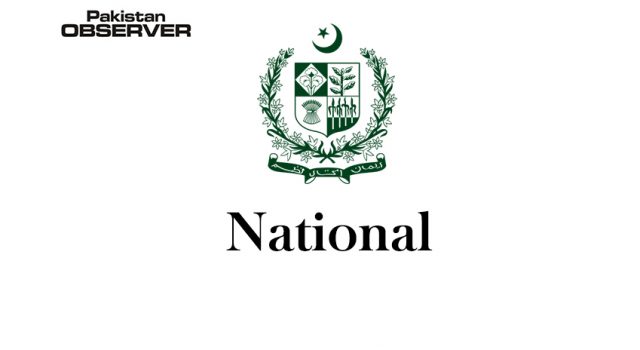Dr. Saeed Ahmad Ali Lahore
Nelson Mandela, renowned South African revolutionary leader had said, ‘I learned that courage was not the absence of fear, but the triumph over it. The brave man is not he who does not feel afraid, but he who conquers that fear Pakistan and India emerged as independent dominions, as a result of partition of subcontinent on August 14 and August 15, 1947, while the fate of the overwhelming majority of Muslims in Indian Illegally Occupied Jammu & Kashmir (IIOJK) has not yet been decided.
According to the self determination clause of UN charter, the people of IIOJK wanted to accede to Pakistan but on the other side, India, to continue its illegal occupation of the occupied Kashmir valley, has been brutally engaged in strengthening its military power clearly manifested in the arms race in South Asia. Despite facing worst torture since decades, the people of Kashmir were at the mercy of despotic and tyrant Indian military while suffering the most, chairperson Pakistan Peace and Culture Organization Mushaal Hussein Mullick told APP, in connection with Kashmir Solidarity Day, being observed on February 5, 2021.Kashmiri and Pakistanis shared the same destiny and that was why Quaid-i-Azam had declared Kashmir, a jugular vein of Pakistan, Mushaal stressed. Indian brutality and oppression could not force the Kashmiris to surrender their will and right to their motherland as they had been guarding their commitment to the accession to Pakistan by rendering heavy and unimaginable sacrifices till this day, she added.
The new generation should follow the footprints of Quaid-e-Azam and study the two-nation theory to put the country on the path of development and prosperity, she urged.Mushaal Hussein Mullick, while replying to a query said that India had been dreaming to turn the Jammu and Kashmir disputed territory into Hindu Rashtra which would never materialize as the Kashmiri people were determined to achieve their just struggle for freedom and the right to self-determination till the last drop of their blood.
Azad Jammu and Kashmir (AJK) President Sardar Masood Khan in a telephonic talk to APP said that despite an unprecedented tyranny and irredentism and colonial policy of India, Kashmiris had depicted an unshakeable resolve and vowed to continue their epoch struggle for freedom and self-determination by giving their blood to keep the flame of liberty burning. The whole occupied Jammu and Kashmir population had been kept under siege by the Indian military since August 5, 2019, adding the military troops were ruthlessly killing innocent Kashmiris and engaged in crimes like their ethnic cleansing, which were not only international war crimes, but also against humanity as well, he added.
Khan said that the BJP-RSS regime was taking systematic steps in Indian Occupied Jammu and Kashmir (IOJK) to alter its demography, its geography, its statehood, and the rights of the people of Kashmir recognised by international law. To a query he said that the nuclear clash between Pakistan and India on the Kashmir dispute was not merely an apprehension but a visible reality. Masood warned that the war hysteria created by extremist Indian rulers and the oppression in the disputed valley was swiftly pushing the region towards a devastating war.
Meanwhile, UK Member Parliament and Labour Friends of Kashmir chairman Andrew Gwynne has recently warned world community in a video message that the human rights’ violations in Indian Illegally Occupied Jammu and Kashmir (IIOJK), and frequent aggression and ceasefire violations along the Line of Control (LoC) were further intensifying the already deteriorated situation of the region which would have adverse effects on the peace and security of the whole world.
It is worth mentioning here that on August 5, 2019, Indian troops again invaded (IIOJK) territory and forcibly annexed the region with its federation while violating the UN Security Council resolutions and by dividing the occupied state into two parts by a false claim of its federal territories. Former chairperson Human Rights Commission of Pakistan (HRCP), Dr Mehdi Hasan said that IIOJK dispute between India and Pakistan could only be resolved on the basis of the independence movement of East Timor, a state in Southeast Asia that had been annexed by Indonesia in 1975. Following the United Nations (UN) sponsored referendum in August 1999, East Timorese were given the right to decide their future after 24 years of Indonesian occupation.
In the referendum, over 70 percent of East Timorese voted for independence from the occupation of Indonesia, in the fight for their just struggle, more than 100,000 East Timorese were killed and atrocious human rights abuses were reported. It merits a mention here that after the referendum, Indonesian-backed militia while terrorizing the country, had killed over 2,600 people, and had forced hundreds of thousands into Indonesian West Timor.
However, to end violence in east Timor, an Australian-led International Force for East Timor (INTERFET) was deployed just in a month. Similarly in Southern Sudan, a referendum took place in January 2011 on whether the people and the region should remain a part of Sudan or to become independent. The referendum was the result of one of the major outcomes of the 2005 ‘Naivasha’ Agreement that was signed between the Khartoum central government and the Sudan People’s Liberation Army/Movement (SPLA/M). Later on February 7, 2011, the referendum commission announced the final results, showing a landmark and landslide majority of 98.83 percent voting in favour of independence.
Kashmir, now under the occupation of India, is looking to the UN for implementation of its resolution passed 70 years ago. In January 1948, the UN Security Council offered to assist in resolving the Kashmir conflict by setting a commission between India and Pakistan. And in the past three decades, Kashmir has already sacrificed over 100,000 lives in the freedom struggle for the right to self-determination.










